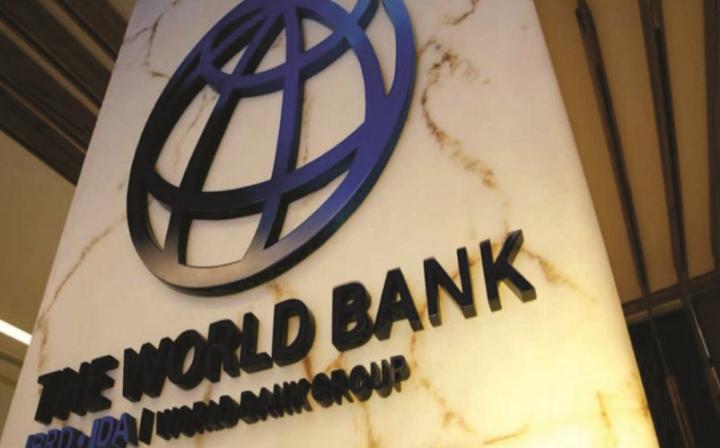The World Bank is set to disburse a $250 million loan to Nigeria next month to strengthen the country’s healthcare delivery systems and address longstanding weaknesses in infrastructure, service accessibility, and public health capacity. The loan, part of a broader global health development initiative, is aimed at supporting reforms in Nigeria’s healthcare sector, especially in primary healthcare and maternal-child health services.
The planned financial intervention comes at a time when Nigeria’s public health system faces multiple challenges, including underfunding, overstretched infrastructure, workforce shortages, and rising health emergencies. Government officials have confirmed that the World Bank facility will be directed toward revamping primary healthcare centres across the country, equipping them with basic amenities, and enhancing access to preventive and curative care.

According to sources familiar with the agreement, the loan will also support the procurement of medical equipment, vaccine delivery systems, and modern diagnostic tools. The Federal Ministry of Health will coordinate implementation, working in tandem with state governments to ensure that the funds are utilized efficiently and transparently.
A significant portion of the funds will be channelled into the National Primary Health Care Development Agency’s (NPHCDA) programmes, with special focus on rural and hard-to-reach communities. These areas are typically the most underserved in terms of medical attention and infrastructure, and the intervention seeks to reduce the health inequality gap between urban and rural populations.
The World Bank, which has played an active role in funding Nigeria’s development sectors in recent years, said the loan will also assist in improving the country’s response to disease outbreaks and build resilience against future pandemics. As part of the package, the project will establish disease surveillance systems, strengthen public health laboratories, and upgrade emergency response capabilities.
Key performance indicators have been built into the loan agreement, including targets for child immunisation coverage, skilled birth attendance, and reduction in maternal and infant mortality. The initiative also aims to address data gaps in the health sector by investing in digital health solutions and health management information systems (HMIS), which will enable real-time monitoring of key health indicators.
Health experts have welcomed the development, noting that increased financial support is critical for meeting Nigeria’s commitments to the Sustainable Development Goals (SDGs), particularly SDG 3, which targets good health and well-being. Dr. Musa Okafor, a public health analyst, noted that the infusion of funds would be a “game-changer” if properly implemented, but warned that success would depend on government accountability and coordination at all levels.
To ensure proper tracking of the funds, the World Bank has insisted on a robust monitoring and evaluation framework, with third-party audits and public disclosure requirements. Training programmes for health workers and administrators will also be part of the project to boost capacity and sustain the investments beyond the lifespan of the loan.
The government has committed to contributing counterpart funding to the project to demonstrate local ownership and ensure sustainability. The Ministry of Finance has reportedly signed off on financial guarantees that align with Nigeria’s medium-term expenditure framework. These contributions will help maintain the facilities and sustain the services after the World Bank funds are exhausted.
Civil society organisations have called for inclusive implementation, urging the government to involve local communities in the design and monitoring of the programme. They also advocated for prioritisation of women, children, and persons with disabilities in the deployment of services and infrastructure.
Beyond physical health facilities, the loan will support nutrition programmes, hygiene and sanitation campaigns, and behavioural change communication to tackle preventable diseases such as diarrhoea, malaria, and malnutrition. These ancillary initiatives are expected to have a multiplier effect on public health outcomes across the board.
The project’s design has been influenced by previous lessons from similar health sector investments, with efforts made to avoid duplication and fragmentation. Instead, the approach will be integrated, drawing on both national and global best practices in health systems strengthening.
While the $250 million loan is not a grant and will eventually have to be repaid, officials believe the long-term economic benefits outweigh the repayment obligations. Improved health outcomes, they argue, lead to greater labour productivity, reduced out-of-pocket health expenses, and a more resilient population.
The initiative marks a renewed effort by the federal government to reposition the health sector as a key pillar of human capital development. It also signals growing international confidence in Nigeria’s commitment to reform, despite fiscal constraints and macroeconomic pressures.
As the disbursement date draws near, attention will now turn to implementation timelines, stakeholder coordination, and delivery on project milestones. If successfully executed, the loan-backed programme could serve as a blueprint for future health sector investments, not just in Nigeria but across Africa.
Support InfoStride News' Credible Journalism: Only credible journalism can guarantee a fair, accountable and transparent society, including democracy and government. It involves a lot of efforts and money. We need your support. Click here to Donate
